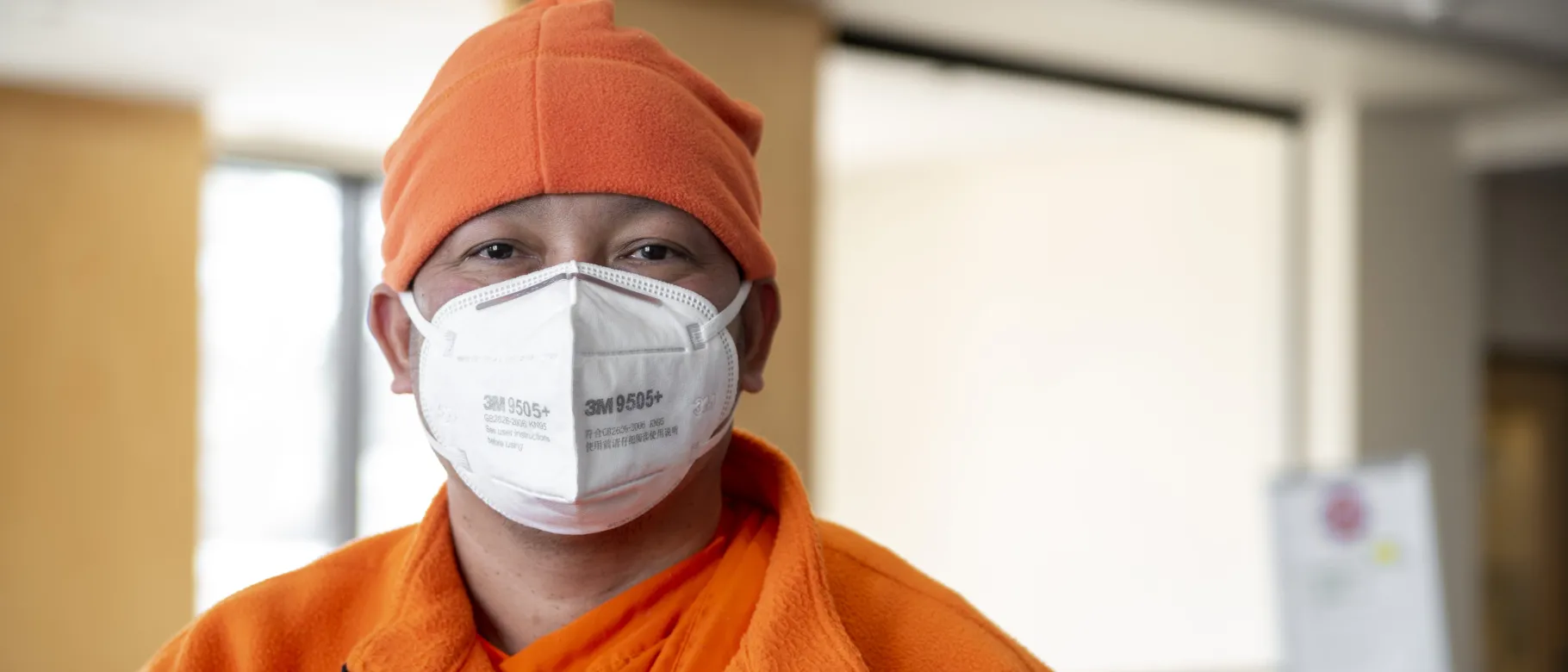College of Dental Medicine offers no-cost care to Buxton’s Buddhist monks

“Finally, there is no more pain,” Phally Prakk, a monk at Buxton’s Wat Samaki Buddhist Temple, said Thursday after the extraction of an aching molar at the University of New England’s Oral Health Center. “I’ve had this going on for years, and this was really needed.”
The Oral Health Center — the clinical education center for UNE’s College of Dental Medicine (CDM) — recently began providing oral health care and interpreting services at no cost for the two monks at the temple, which serves Maine’s Cambodian community. Buddhist monks are traditionally cared for by the communities they serve, and, because they do not earn income, often encounter barriers to health care.
Prakk was the first of the monks to take advantage of the partnership. Had there been no such no-cost program, he said, he would have been in pain for even longer.
“I’ve had this pain going on for years,” he remarked.
Jon Ryder, D.D.S., M.S., dean of the CDM, said providing the monks with oral health services falls in line with the college’s — and the University’s — mission of improving the health of people and communities, particularly in rural areas.
“Our mission is to improve the health of Northern New England, as well rural and underserved areas, while shaping the future of dentistry through excellence in education, discovery, and service,” Ryder said. “It makes sense to us that we prioritize new Mainers as part of that.”
Ryder said the college has a special connection to the country of Cambodia through a long-standing student and faculty exchange program with the University of Puthasastra Dental School in Phnom Penh.
Prior to the COVID-19 pandemic, the CDM regularly sent dental students to Cambodia for a few weeks each year to provide dental treatment and to experience international health care systems. In exchange, faculty and students from the University of Puthasastra have also come to study and learn at UNE.
It seemed natural, then, Ryder said, to build patient-centered relationships with the Buxton temple. During traditional holiday celebrations, for example, CDM students helped implement infection control measures around COVID-19 and distributed dental care products such as toothbrushes and toothpaste. They also provided oral hygiene instruction.
Ryder added that, while the CDM cannot provide the same no-cost care for all people, the college is working closely with Maine’s Black, Indigenous, and people of color (BIPOC) communities to identify their medical needs and help develop programs and opportunities for care.
“As Maine’s only dental college, we have a responsibility to educate and produce highly skilled and competent dentists to serve our state,” he said. “That service begins with putting the patient first, no matter who they are, or where they come from. If we can educate students while, at the same time, improve the health of our communities, we have fulfilled our mission.”
As for Prakk, he is grateful to UNE and the College of Dental Medicine for the care he has received.
“I’m really thankful and really, really happy that the dental school has this kind of program to help people who are low-income and need care,” he said.